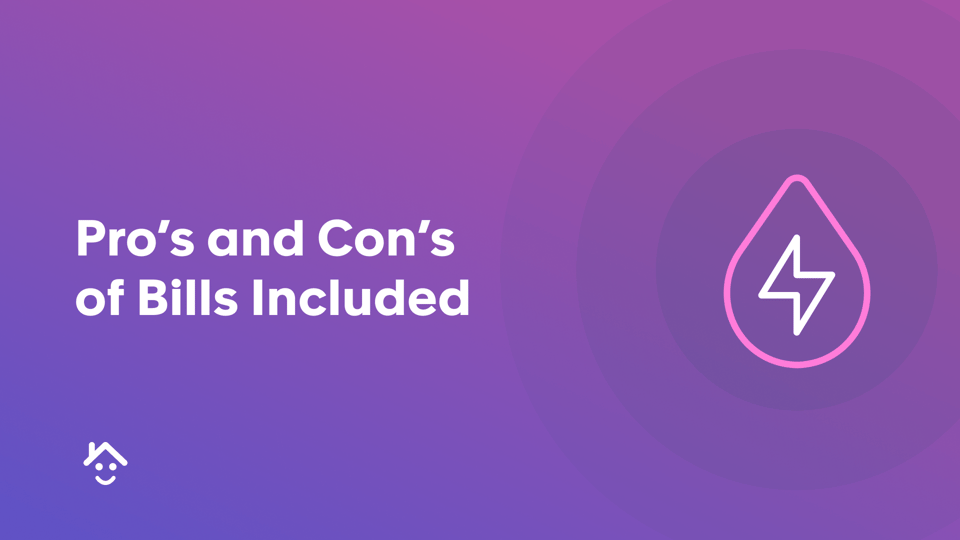What is ‘bills included’?
When a rent is labelled as ‘bills included’, this usually means that the cost of rent includes all the property’s utility and community fees, often covering gas, water, electricity, and wifi. Here are some of the advantages and disadvantages of this option.
Pro - Convenience
Choosing a bills-included package saves you time and energy. It is reduced to one single payment every month, and you don’t need to search for any additional contracts. Your landlord finds them for you, and you save yourself the trouble of things like meter readings and router setups.
Pro - Unlimited usage
If bills are included, this means you’re paying a set price for them every month, as part of your rent. Therefore, this often gives you the freedom to have the heating on all winter and to not worry about fluctuating prices and policing other flatmates’ usage.
Con - Cost
If an agency includes bills in their rent, it is often because this works in their favour. You may end up paying more than you would if you research the companies yourself, and you may miss out on discounts and deals.
Referring back to the ‘unlimited usage’ point, this does benefit many people. However, some prefer to use very minimal heating and energy in order to pay the lowest bills possible. If your bills are included, you’re likely paying a more maximal cost no matter what, and reducing your usage won’t make any difference.
Know yourself, and know your property
Finally, it is important to consider the type of property in question, and you and your flatmates’ lifestyles. For instance, a basement flat may need to have the heating on all winter, because they are generally colder and damper. In this case, a bills-included package is the way to go. Alternatively, a top-floor flat, where the heat rises, or with tenants who happen to spend most of their time elsewhere, should opt to pay according to their usage.




